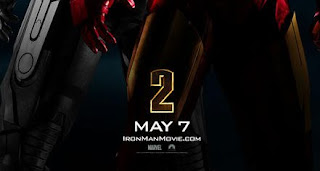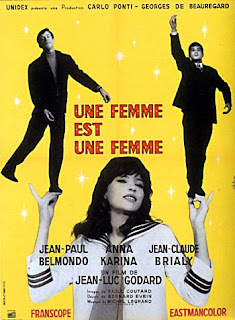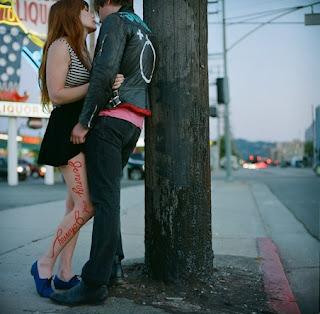
Time Magazine, Vol. 175, No. 8 | 2010
Richard Stengel, Managing Editor
I'm a recent recruit to the crowd of serious magazine readers. Usual fare for me is Juxtapoz or Giant Robot, personal favorite High Fructose. Magazines that follow art culture of graffitti fiends and guys in Japan who make sculptures of giraffes out of Celophane and then position them around cities to look like they're eating telephone wires. I bust out the $7 an issue for these guys because you just can't capture that shit online. You have to be able to hold these images, and, lets face it, for $7, frame my favorite whole pages and call the layout “art” itself. Especially HF. I rub the paper they print on across my cheeks it's so plush. Long story short, the most serious magazine I read on a regular basis is Zoetrope, France Ford Coppola's venus fly trap of short story fodder for his movies/films/whatever.
So, here I am, coaching Moldovan boys how to play American football. Already completely out of character, I pick up a spare issue of Time to peruse. Lady Gaga and Bill Clinton are posed side by side on the front cover, how serious can it be?
Turns out, not very. I have inadvertently started my readership on the “Special Double Issue” with “The 100 Most Influential People in the World.” Yes, that is the gamut. Lady Gaga → Bill Clinton. As, thank the gods, columnist Joel Stein points out “Putting together the most influential list is easy,” if you wanna rub shoulders with the right sponsors and advertisers and subscribers to your magazine. Radhika Jones, assistant managing editor, describes the list building as “really fun” especially when they pair the worshiped with the worshipful writer. More on that later.
So, the issue is split four ways: Leaders, Artists, Thinkers, Heroes, and each gets 25 guys/gals. This is impressive. I'd have expected them just to outright schmooz Halliburton heads or Presidents of politically friendly countries, but this way Time points out that not every one is equally influenced just by art or just by politics. It encompasses all facets of life. All facets of our—dare such a frivolous person as me use a German word—zeitgeist, as the title of this magazine boasts. Sweet.
Better yet, upon checking with Matt and Martin, my fellow coaches who are way more in tune with the world than me, a lot of these names are not widely known by most people. I was going to learn! I live in a village where electricity works 60% of the time and internet 40%. so have little contact with the real world. Lady Gaga and Bill Clinton I've heard of (my Moldovan students LOVE Gaga) but Admiral Mike Mullen, Annise Parker, Robert Pattinson, Didier Drogba, or Glenn Beck... Nada.
The downfall started with some of the choices I did recognize. Sandra Bullock? They justify this with how much money she made last year. Even though she made 4 movies in one year (hard work to be sure) and they were each big popcorn flicks and seen by apparently tons of people, is it Ms. Bullock doing the influencing? Do the movies cause their viewers to change their mindsets? I'll give you Gaga. The woman is not only makin' the big bucks and being listened to by everyone from my basically illiterate Moldovan 5th graders to people I term “uber intellectuals” in big name universities. And she has, as leader of her own haute couture art/music factory Haus of Gaga, revolutionized the concept of a music video from regular slut-fest with glitter to fine performance art. Not to mention acceptance of homosexuality.
Turns out the choosing is quite like a popularity contest. People are chosen based on a poll taken on Time's website. Editor Jones also points out that they narrow this contest by looking for “who had a good year,” making the zeitgeist captured significantly more narrow. Not bad.
But, really, Ashton Kutcher?
And then it got worse. Guess who wrote Mr. Kutcher's profile. None other than Mr. Sean “Diddy” Combs, a man who is so effective at changing people's hearts and minds he's influenced his own name into 5 or 6 incarnations. Allow me to clear my throat: “we are yin and yang: I am in your face, but he is understated, cool, sauve.” A) this is not a comparison to you, sir. B) maybe “what he and Demi do with Twitter” is influential, but what do they do? I didn't even know he still did anything except shoot camera commercials where Demi is conspicuously not present while he flirts with a dozen scantily clad chicks who apparently get off on candy pink hand held digi-cams. Advertising cameras and tweeting with “positive messages” does not a mogul make. Sorry Did, Diddy, Sean, Sir Combs, Puffy.
But, let me explain. I didn't originally think Time was letting cool people write these. I was just expecting Time freelancers and columnists to pull names from an Editor-chosen hat. I opened at random and was reading happily through the Leaders section til I got to Sarah Palin's blurb. Let me preface: I have nothing against Sarah Palin. She's done damn well for a lady with 5 kids. Has a killer bod, friends in high places, a good shot, damn good taste in shoes—she's on my shortlist of people to invite for my ideal dinner party. Sarah Palin's blurb however, and here's where I have to admit I was being a sloppy reader, did not strike me as well written. It was nothing short of—earmuff the children—ass kissing on the part of whoever this chump masquerading as a writer was. What the hell?!
Exhibit A : “The independent, patriotic spirit, attitude and soul of our forefathers are alive and well in Sarah.”
Exhibit B : “Her rugged individualism, self-reliance and a herculean work ethic resonate now more than ever in a country spinning away from these basics that made the USA the last best place.”
Exhibit C : “We are driven to be assets to our families, communities and our beloved country connect with the principles that Sarah Palin embodies.”
uh... Righteously angered I checked the byline. Who the f*** is Ted Nugent and why is he allowed to write in a public place? I was informed by my fellow football coaches that he is a former rock guitarist who likes guns. I see the connection, but is anyone else in the world a little freaked out by people vehemently agreeing with each other?
I mean even General Petraeus manages to keep it in the foxhole when talking about General McChrystal.
Anyway, between this Nugent/Palin fiasco, and other has-been music kids (P-Diddy, Cyndi Lauper, Stevie Nicks) trying to reinvigorate their own influence over ears by sucking up to currently influential music kids I was pretty much done with the whole issue.
But all that fury dissipated when I encountered others. Fusion chefs (David Chang) and leaders of far off countries (Recep Tayyip Erdogan) and doctors (Namperumalsamy) and prisoners (Nay Phone Latt) and lawyers (Elizabeth Warren) are extremely influential in the world whether most Americans know who they are or not. And their writers, even if not pros were well structured and actually answered the question: “Why is this person influential in the world of 2010?”
I rescinded. The contrast allowed me not only to learn about both cool people and shite people, but also the difference, at point blank range, between good reporting and propaganda. Time also did a pretty bang up job on letting opposite ends of party crazies praise each other. If Second Amendment nut jobs like Nugent get to do Palin, and Palin gets to do Beck, then it's only fair for the hippy liberal fruits that Hil-Dawg Clinton does Nancy Pelosi and Bono does Bill (Clinton, of course!). They even go so far as to go for Posh Spice doing Marc Jacobs and Robert DeNiro, Ben Stiller. It's one big, happy nepotisim!
Thank Thor people like Yukio Hatoyama, Ron Bloom and Steve Jobs were included and people like Joe Stein and Salman Rushdie get to write some. I would definitely cry if they'd left off Steve Jobs. Oh, and Banksy. A name I finally recognized! At last, mainstream America recognizes graffiti as a mogul-esque something or other that, even when they don't know it's you, they are influenced by what you're spraying. Time gets it overall. Phew for my time ghost.















